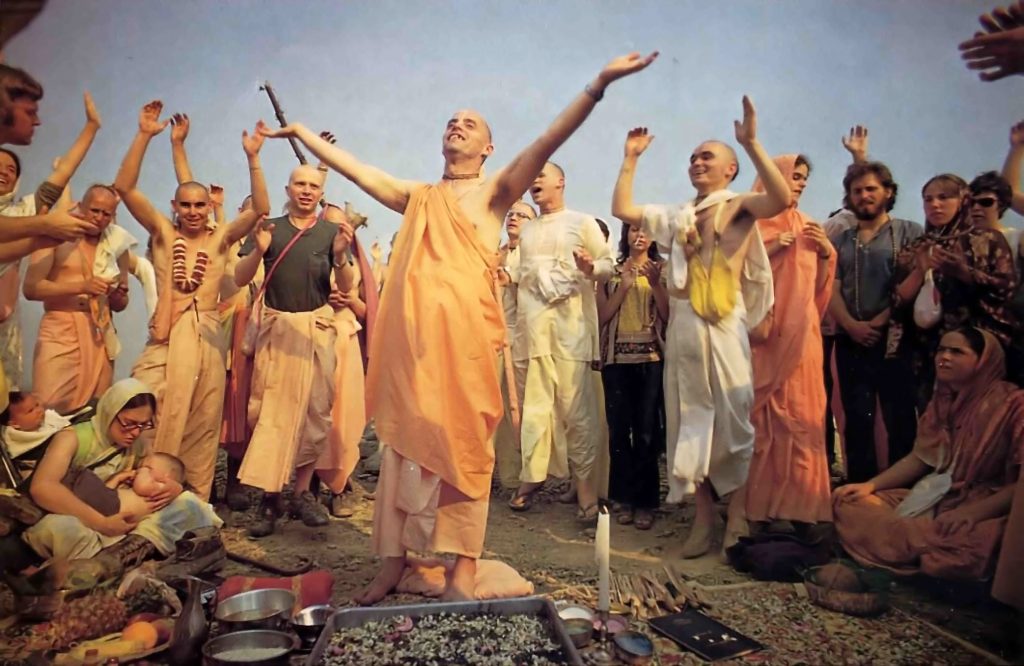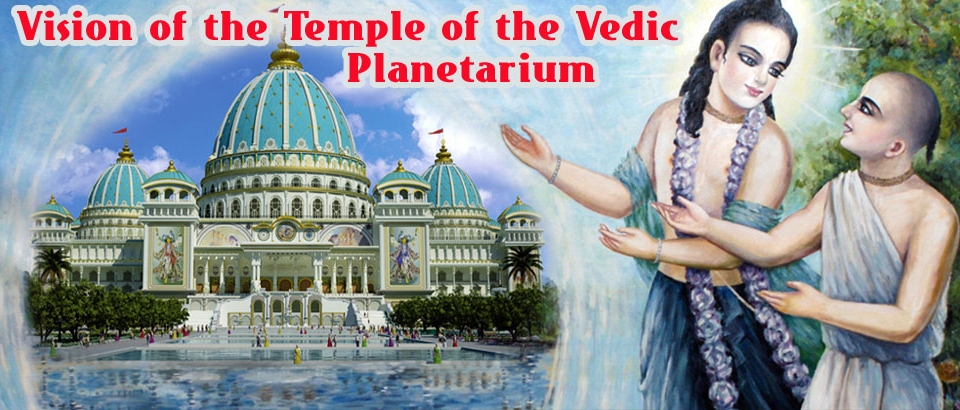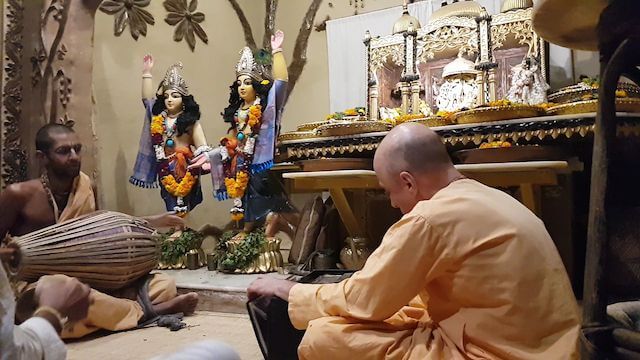ISKCON devotees follow a disciplic line of Gaudiya Bhagavata Vaishnavas and are the largest branch of Gaudiya Vaishnavism. Vaishnavism means ‘worship of Vishnu’, and Gauḍa refers to the area where this particular branch of Vaishnavism originated, in the Gauda region of West Bengal. Gaudiya Vaishnavism has had a following in India, especially West Bengal and Orisha, for the past five hundred years. Bhaktivedanta Swami Prabhupada disseminated Gaudiya Vaishnava Theology in the Western world through extensive writings and translations, including the Bhagavad Gita, Srimad Bhagavatam (Bhagavata Purana), Chaitanya Charitamrita, and other scriptures. These works are now available in more than seventy languages and serve as the canon of ISKCON. Many are available online from a number of websites.
Early Western conversions to monotheistic Krishna Vaisnavism or the Bhagavata Vaisnava line which forms the basis of the ISKCON philosophy were recorded by the Greeks and are reflected in the archaeological record.
Krishna is described as the source of all the avatars. Thus ISKCON devotees worship Krishna as the highest form of God, svayam bhagavan, and often refer to Him as “the Supreme Personality of Godhead” in writing, which was a phrase coined by Prabhupada in his books on the subject. To devotees, Radha represents Krishna’s divine female counterpart, the original spiritual potency, and the embodiment of divine love. The individual soul is an eternal personal identity which does not ultimately merge into any formless light or void as suggested by themonistic (Advaita) schools of Hinduism. Prabhupada most frequently offers Sanatana-dharma and Varnashrama dharma as more accurate names for the religious system which accepts Vedic authority. It is amonotheistic tradition which has its roots in the theistic Vedanta traditions.
The basic Hare Krishna beliefs can be summarized as follows:
1. By sincerely cultivating true spiritual science, we can be free from anxiety and come to a state of pure, unending, blissful consciousness in this lifetime.
2. We are not our bodies but eternal, spirit souls, parts and parcels of God (Krishna). As such, we are all brothers, and Krishna is ultimately our common father. We accept the process of transmigration of the soul (reincarnation).
3. Krishna is eternal, all-knowing, omnipresent, all-powerful, and all-attractive. He is the seed-giving father of all living beings, and He is the sustaining energy of the entire cosmic creation. He is the same God as The Father Allah, Buddha and Jehovah.
4. The Absolute Truth is contained in the Vedas, the oldest scriptures in the world. The essence of the Vedas is found in the Bhagavad-gita, a literal record of Krishna’s words.
5. One can learn the Vedic knowledge from a genuine spiritual master – one who has no selfish motives and whose mind is firmly fixed on Krishna.
6. Before one eats, one offers to the Lord (Krishna) the food that sustains all humans; then Krishna becomes the offering and purifies the offered.
7. One performs all actions as offerings to Krishna and does nothing for one’s own sense gratification.
8. The recommended means for achieving the mature stage of love of God in this age of Kali, or quarrel, is to chant the holy names of the Lord. The easiest method for most people is to chant the Hare Krishna mantra: Hare Krishna Hare Krishna Krishna Krishna Hare Hare Hare Rama Hare Rama Rama Rama Hare Hare.


